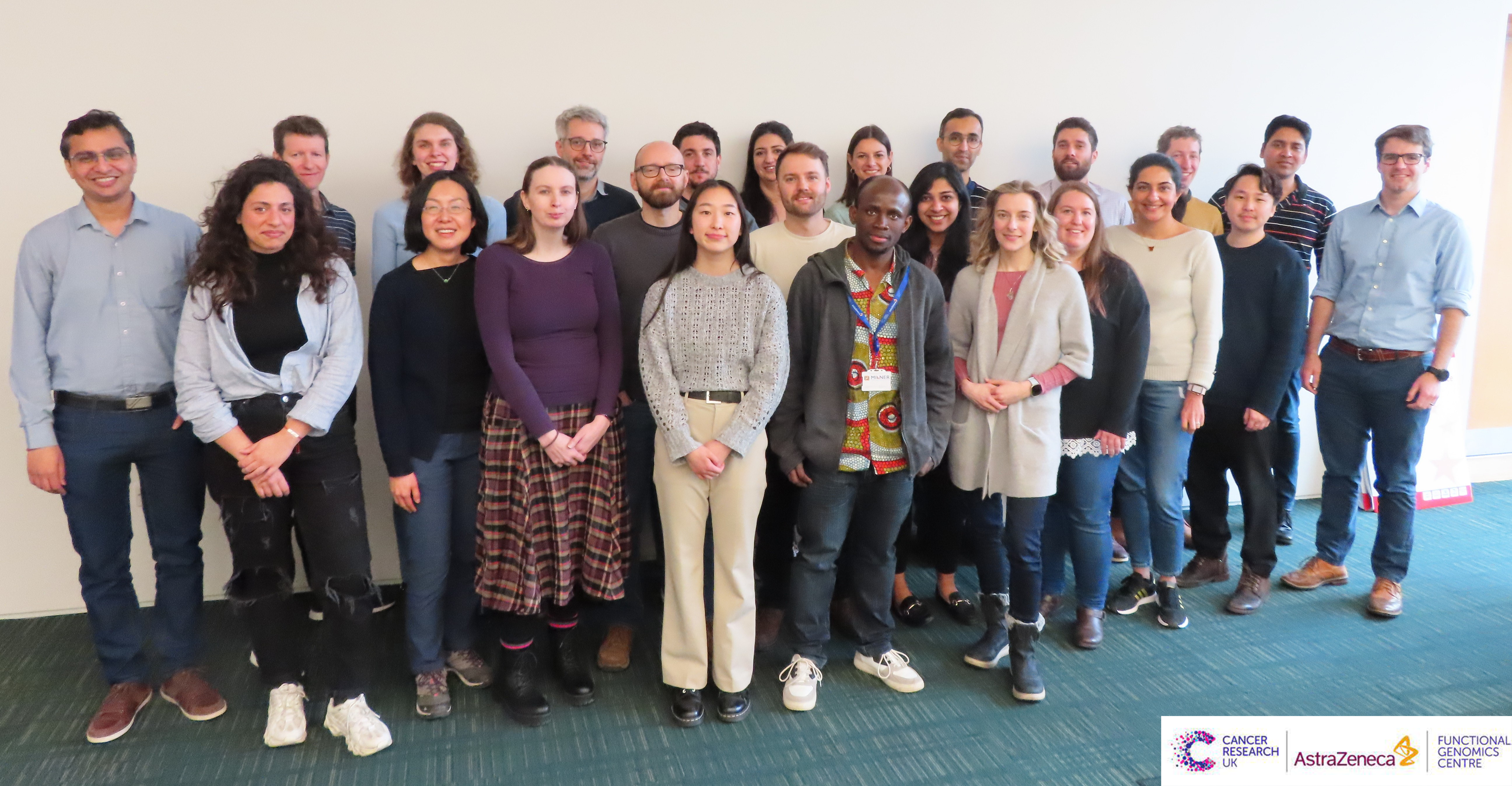JOINT ASTRAZENECA-CANCER RESEARCH HORIZONS FUNCTIONAL GENOMICS CENTRE
The Functional Genomics Centre (FGC) was established in 2019 as a collaboration between AstraZeneca and Cancer Research Horizons, to build a centre focused on developing and applying genetic screening in the field of oncology. Based at the Milner Therapeutics Institute from 2019 to 2024 and now based at the AstraZeneca headquarters on the Cambridge Biomedical Campus, the FGC is developing novel CRISPR technologies to better understand the biology of cancer, creating biological models that may be more reflective of human disease and advancing computational approaches to better analyse big datasets. The mission of the FGC is to use these technologies to deliver projects to AstraZeneca and Cancer Research UK scientists that will:

- Increase our understanding of the basic biology of cancer
- Identify novel target opportunities for therapeutics
- Understanding drug resistance in order to support patient stratification or better treatment combination options.
The value of these two organisations coming together to create the FGC has been well demonstrated, with 34 projects completed across the collaboration and a portfolio of 37 active projects on-going.
FGC scientists work alongside each other and on projects across the different organisations, facilitating a truly collaborative environment focused on technical innovation and scientific progress.
The FGC’s Technology Development is focused on creating small and better libraries, which will allow us to probe models of increasing complexity, such as human primary immune cells and patient derived organoids. Another focus is the implementation of assays to study more complex phenotypes, such as the modulation of gene expression signatures and protein abundancies enabled by single cell RNA sequencing and FACS sorting. All development is co-owned and so is free to flow back into either organisation, democratising access to this powerful technology.
A world-leading centre of expertise in genetic screens, cancer models, CRISPR vector design and computational approaches to big data, whose goal is to identify novel targets and resistance mechanisms to create new cancer medicines

